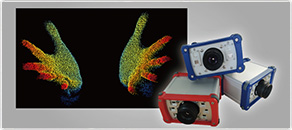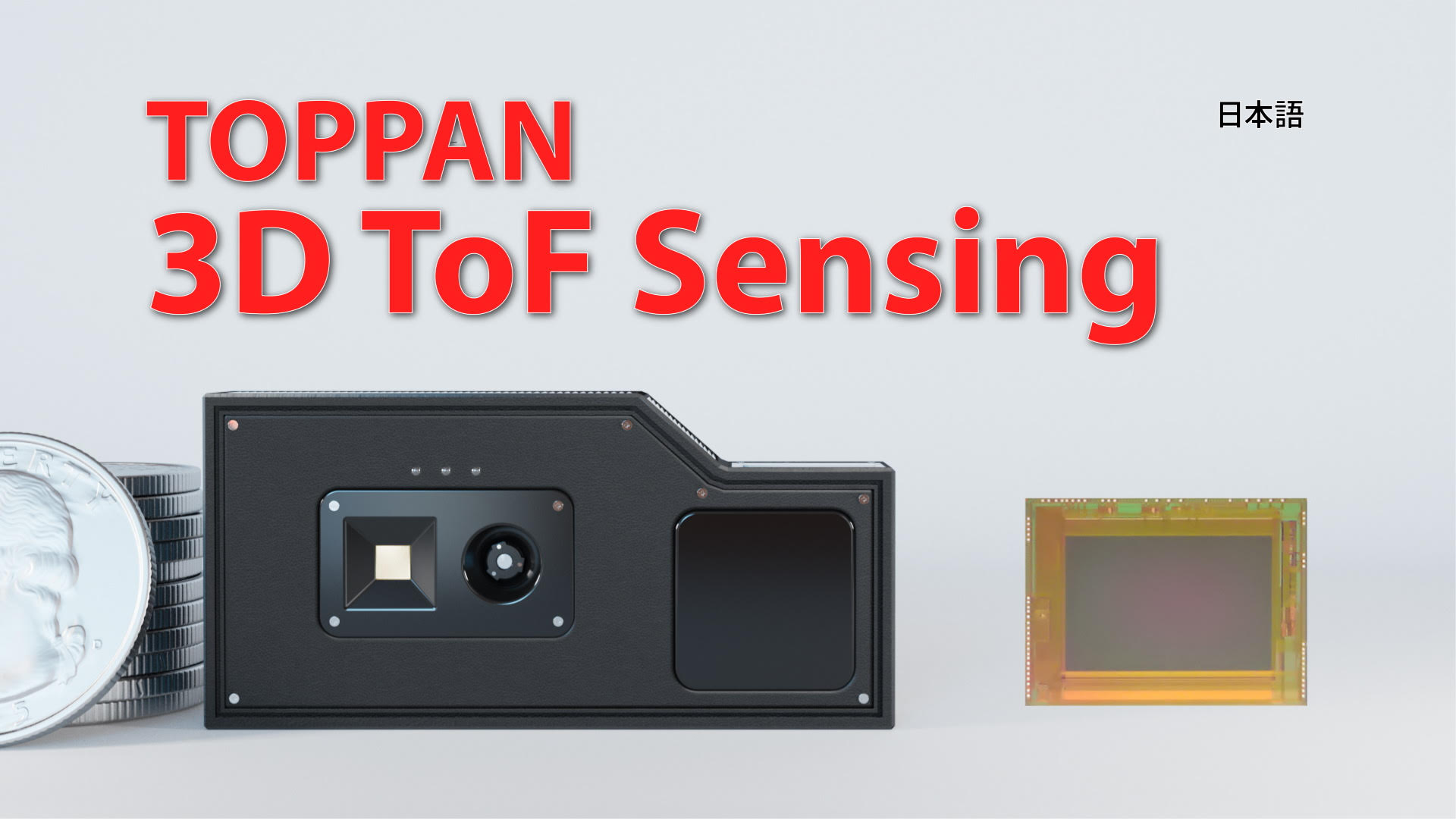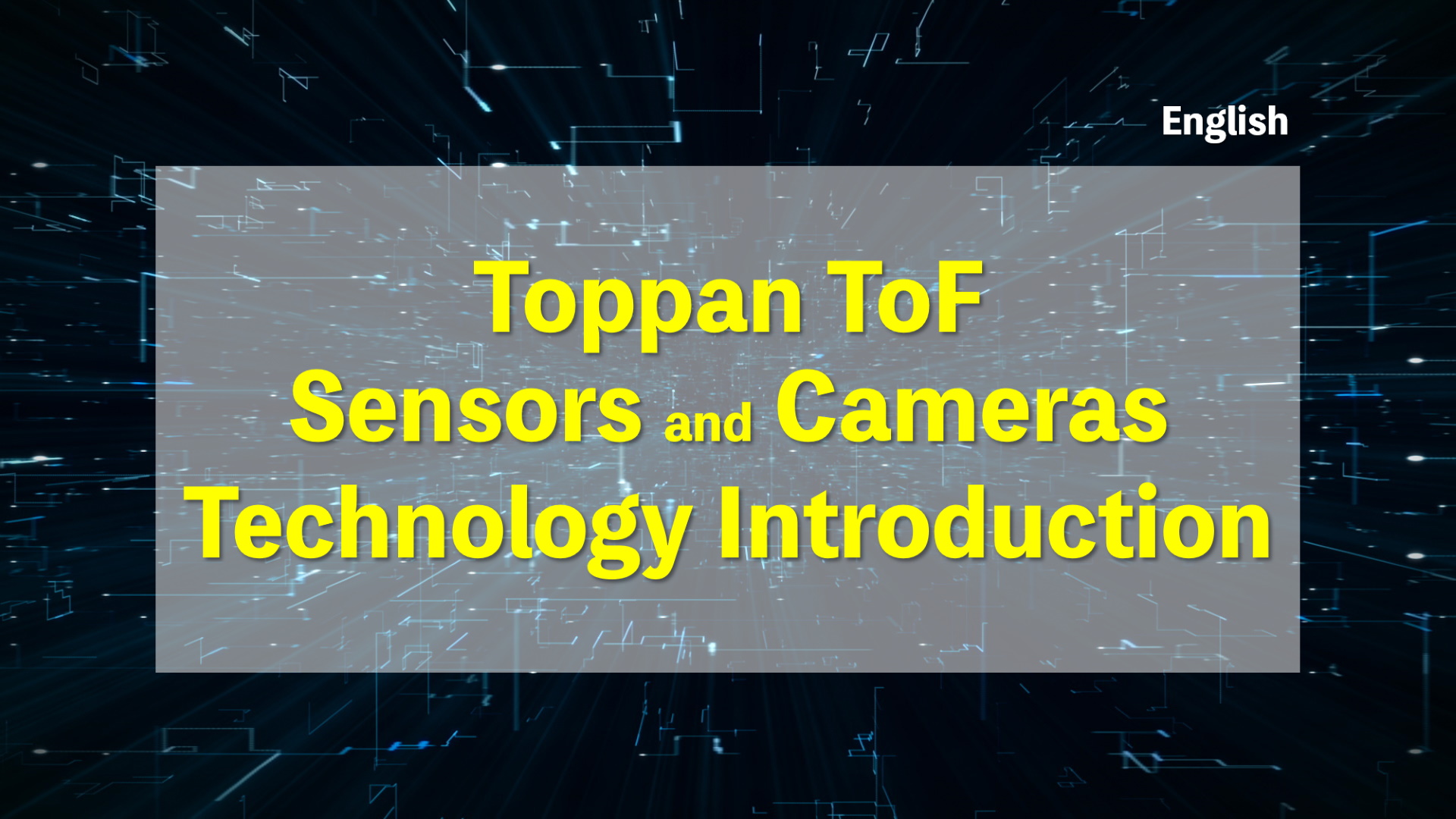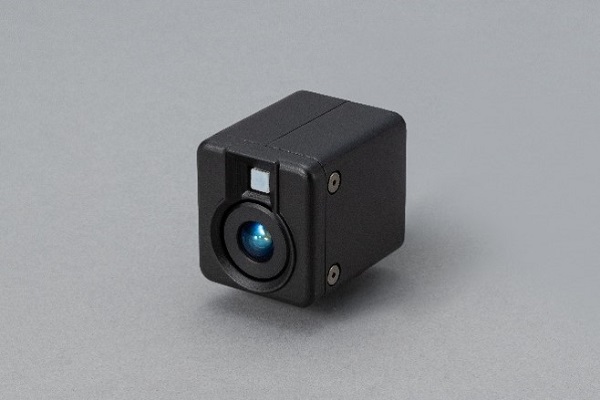
©Toppan Inc.
Tokyo – June 16, 2022 –Toppan (TYO: 7911), a global leader in communication, security, packaging, décor materials, and electronics solutions, and Brookman Technology, Inc. (Brookman Technology), a Toppan subsidiary originating from Shizuoka University and engaged in the development and sales of CMOS image sensors, have collaborated on employing a hybrid Time-of-Flight (ToF) method1 to develop a three-dimensional range image sensor (3D sensor) capable of measuring distances from one to 30 meters.
The new sensor is capable of measurement over a range more than five times greater than that possible with 3D sensors employing the conventional indirect ToF method. This will contribute to enhancing operability and safety for autonomous drones and robot carriers that are equipped with sensors to allow them to avoid obstacles. The hybrid ToF sensor also has a unique ambient light cancelling function, making it the world’s first2 CMOS image sensor capable of measuring distances up to 20 meters under conditions with an illuminance of 100,000 lux, equivalent to mid-summer daytime brightness.
The details of this new type of ToF sensor technology were presented on June 15 by Toppan, Brookman Technology, and Shizuoka University at the 2022 IEEE Symposium on VLSI Technology & Circuits (VLSI Symposium), an international conference on semiconductor-related technologies held in Honolulu, Hawaii, from June 13 to 17 by the Institute of Electrical and Electronics Engineers.
The 3D sensor market is expected to expand as smartphones and game consoles become more sophisticated and the use of autonomous robots in industry grows. Several different types of 3D sensor exist, based on the different principles used to detect distance. ToF sensors estimate distance to an object by measuring the time it takes for emitted light to be reflected back. On the back of progress in technological development in recent years, the use of ToF sensors for smartphones and other devices is increasing due to their compact form factor and low power consumption.
Autonomous robots and drones need to have an environment mapping function that enables them to detect obstacles tens of meters in front and ascertain their own position from video images. However, more widespread use of 3D sensors employing the conventional indirect ToF method has been limited due to insufficient ambient light tolerance when used outdoors.
With Brookman Technology now on board as a subsidiary, Toppan has been able to leverage the strengths of both companies to drive the development of a new type of 3D sensor. This has led to the development of a hybrid ToF technology based on refining Brookman Technology’s unique “short-pulse modulation”3 method, enabling long-distance measurement, outstanding ambient light tolerance, high-speed imaging, and simultaneous use of multiple cameras.
“Together with Brookman Technology, we hope these new sensors contribute to greater safety and convenience by functioning as ‘3D sensing eyes’ that expand the possibilities for autonomous robots and industrial devices,” said Tatsuo Noguchi, head of Toppan’s ToF Business Development Center. “Toppan will drive further development of cameras with range sensors employing the new ToF technology, with a plan to make models available for testing from December this year and launch sales in the fall of 2023.”
Features of the new ToF sensor
Measurement of distances up to 30 meters
The use a of a hybrid ToF method makes it possible to measure distances of up to 30 meters, about five times further than conventional models.
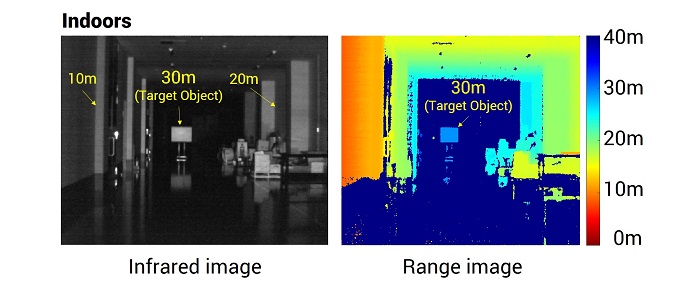
©Toppan Inc.
Noise cancelling function to facilitate outdoor measurement in mid-summer conditions
Each pixel is equipped with a function to eliminate components of external light. This removes ambient light noise and makes accurate measurement possible even when illuminance is in the range of 100,000 lux, equivalent to mid-summer daylight.
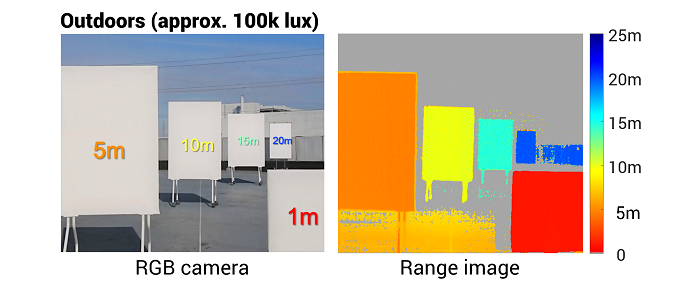
©Toppan Inc.
High-speed imaging of 120 frames per second
Distances can be measured without blurring, which can cause errors, because measurement and elimination of ambient light noise are performed in a single frame. This makes it possible to take a maximum of 120 range images per second, approximately four times the capability of existing models.
Simultaneous operation of up to 256 cameras
A unique control technique makes it possible to cancel out signals emitted from other cameras by treating them as ambient light. This means that up to 256 cameras can be operated at the same time without interference between cameras.
2. As a ToF sensor with a conventional CMOS image sensor pixel structure that does not use an avalanche photodiode. Toppan research based on prior art documents and existing product catalogs (June 2022).
3. In contrast to “continuous wave modulation,” whereby continuous waves of light are emitted, “short pulse modulation” is a method for measuring distance by emitting pulses of light with an extremely short duration.
About Brookman Technology
Brookman Technology, Inc. was started in Hamamatsu, Japan in 2006 as Brookman Lab, Inc., by leading CMOS image sensor expert Dr. Shoji Kawahito, a Professor in Electrical Engineering at Shizuoka University. Since then, Brookman Technology has worked on numerous forms of CMOS analog and mixed signal IC design, specializing in the design of advanced CMOS image sensors for a wide range of applications. The company became a subsidiary of Toppan in March 2021 through the acquisition of 94.6% of its shares.
About Toppan
Established in Tokyo in 1900, Toppan is a leading and diversified global provider committed to delivering sustainable, integrated solutions in fields including printing, communications, security, packaging, décor materials, electronics, and digital transformation. Toppan’s global team of more than 50,000 employees offers optimal solutions enabled by industry-leading expertise and technologies to address the diverse challenges of every business sector and society and contribute to the achievement of shared sustainability goals.
For more information, visit https://www.toppan.com/en/ or follow Toppan on LinkedIn https://www.linkedin.com/company/toppan/.
